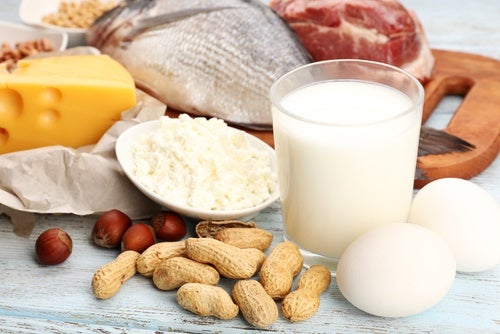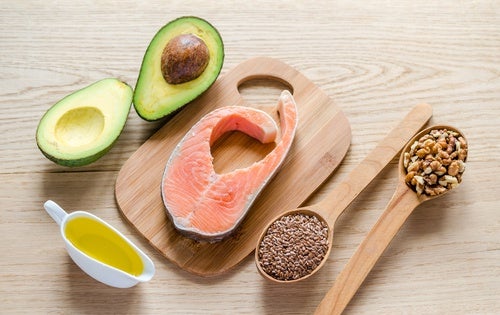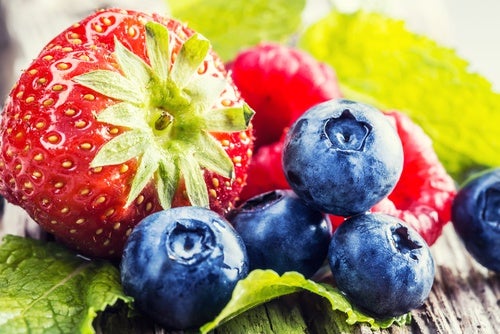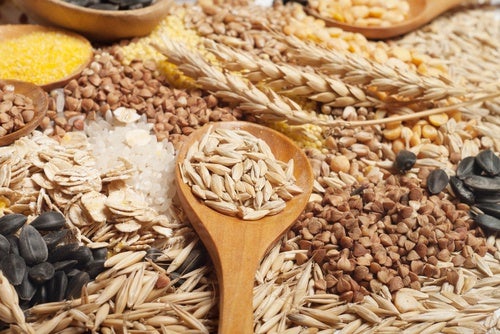
Our brain is to control the nervous system central, responsible for managing the actions and reactions of the body. Thanks to the brain, we can control vital activities such as digestion, breathing, the heart beat and our emotions. Having a healthy brain and active is synonymous with a good memory, as well as being essential to prevent degenerative diseases such as dementia, Alzheimer's disease, Parkinson's disease or multiple sclerosis.
Full-time care for the brain ensures a better quality of life, both in the present and in the future. This time you are going to share 8 nutrients that you can help your brain.
Healthy fats

The omega 3 fatty acids are a type of healthy fat that benefit the body and the brain. This type of fat is essential, since most of the brain's cells contains fat. Foods rich in omega fatty acids 3 include:
- The salmon.
- The tuna.
- Flaxseed.
- The chia.
- The walnuts.
Antioxidants

Poor nutrition, pollution, chemicals or UV rays, among other factors, causes accumulation of radical free in the body, and as we age, the oxidative damage increases, causing damage in different organs of the body. Antioxidants are essential to stop the action of free radicals in the body and prevent many diseases. Among the rich sources of antioxidants you can find:
- Blackberries.
- The broccoli.
- The carrots.
- Blueberries.
- The granada.
- citrus.
- The garlic.
- The tomatoes.
- The grapes.
- Whole grain cereals.
Proteins

Our not only brain has neurons, but it also segregates different types of chemical substances called neurotransmitters, which are the messengers of signals between neuron and the neuron. The consumption of proteins gives the brain a significant amount of amino acids for the construction of these neurotransmitters. Therefore, proteins are key to the proper functioning of the brain. You can consume proteins through:
- Dairy.
- Egg.
- Fish and seafood.
- Meat.
- Chicken.
- Soy.
Water

Much of our body consists of water and our brain is no exception. It is proven scientifically the most minimal dehydration can affect cognitive ability, concentration and, in fact, you can commit the memory. A good amount of water should be consumed per day.
Vitamins and minerals

Vitamins and minerals are essential for the correct functioning of all organs, including the brain. When a person suffers some sort of deficiency of these nutrients can suffer neurological alterations. It is important to include vitamin B12, vitamin B6, vitamin C, iron and calcium. Even though they can be eaten in supplement, ideally, do it through the diet, eating fruits, vegetables and cereals.
Fiber

Although many may think that the only fiber is good for the digestive system, the truth is that the brain also benefits by its consumption. This is because fiber helps to absorb the sugar slowly, which helps to prevent an overload of glucose in the brain. To take advantage of its benefits can consume through foods such as fruits and Peel vegetables, legumes like beans, beans and chickpeas, nuts and whole grains.
Coffee

Coffee consumption is beneficial to brain health since this food contains a significant amount of antioxidants and bioactives that may prevent damage to the brain. According to several studies, people who drink 3 cups of coffee a day reduce the risk of Alzheimer's disease and improve your brain health. That Yes, it to be beneficial should be consumed moderately.
Whole grains

Whole grains contain fiber, folic acid and vitamin B6, that stimulate the brain. According to a study in the school of Medicine of Wake Forest (Carolina of the North, United States), the consumption of whole grains is key to brain health, since reduces the risk of developing CVD, such as heart disease and stroke. You can increase the consumption of whole grains through the wheat, barley, rice, corn, oats, rye, quinoa, buckwheat, sorghum or millet, among others.

0 comentarios:
Post a Comment